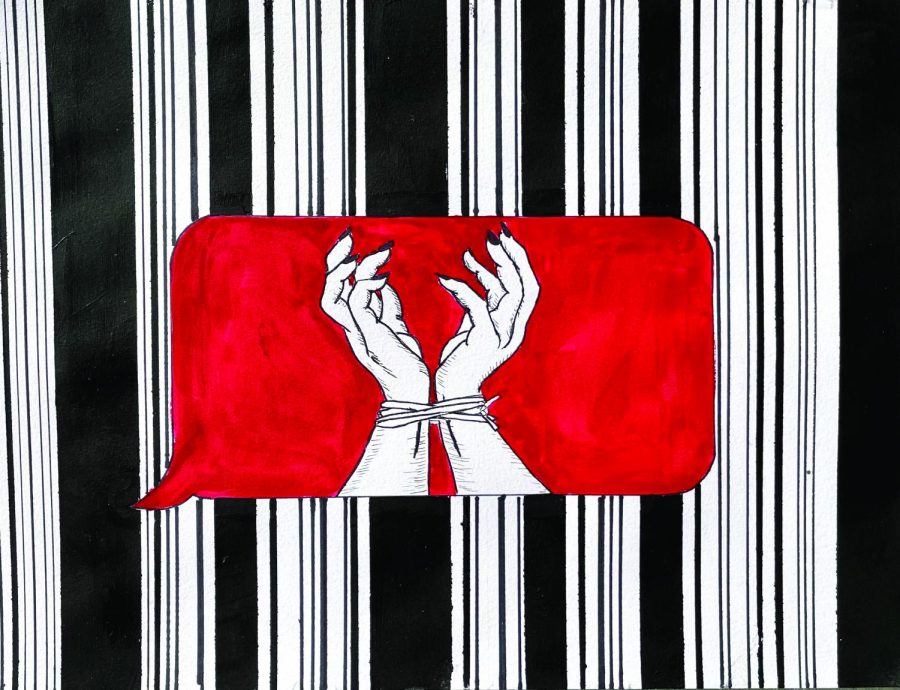A closer look at human trafficking
November 11, 2020
“We came across a parcel from August owed to you. Please claim ownership and confirm delivery here: [link].”
Starting in Aug. 2020, texts similar to this one were sent out nationally. Social media spread the idea that they were connected to sex trafficking, but agencies involved in tracing human trafficking have found no connection.
All across social media platforms such as Instagram and TikTok, users have posted screenshots of these phishing texts and warnings about clicking the links. According to social media users, by clicking the links in these texts, human traffickers would be able to track the user and have access to their location.
Several students, including senior Anna Connolly, have received similar phishing texts. But with the recent attention on social media, students have refrained from clicking the links.
“I actually have received a human trafficking text,” Connolly said. “It was really scary, but I am lucky that I knew what it was and did not click the link. Some of my friends had previously received them and told me about it, and I hadn’t ordered anything via FedEx, so I was automatically suspicious.”
Although this outpouring of warnings on social media has been occurring for three months, there is no evidence these text scams arerelated to sex trafficking.
Caren Benjamin, the chief communications officer at the Polaris Project, which fights human trafficking, told USA TODAY she
has not yet seen a human trafficking situation that “follows this pattern” of being tracked by a scam text. Instead, USA TODAY reported these texts are phishing scams to acquire financial information.
While these texts have no association with sex trafficking, a local nonprofit agency estimates 400 teens are trafficked for sex each night in Dallas. The Dallas Observer recently reported the COVID-19 pandemic may prompt an increase in human trafficking in DFW. As more people turn to internet and social media use, human traffickers to turn to those methods to find new victims, the Observer article said.
To learn more about the topic of human trafficking, Spanish and Latin American Short Fiction semester seminar, led by World Languages Department Chair Alejandra Suarez, has been reading different short stories, including Las Medias Rojas. The story is about a girl who is being physically abused by her father and simultaneously lured into human trafficking. Additionally, they watched the Javier Bardem movie “Biutiful,” which dealt with the topic of labor trafficking in Spain.
While the class is based on Spanish literature and culture, Suarez wanted to add components to the curriculum that addressed current global issues and raise awareness for them
.“I want my student to know their value and I want my students to know how much they are worth,” Suarez said. “I love teaching Spanish, don’t get me wrong, but if I can teach about real life and real things that are happening in today’s world, it is way better.”
Suarez said one of her goals was to inform her students of human trafficking’s prevalence and for them to have awareness of the issue. Senior Inez Johnson said she learned about the different forms of human trafficking and how little the topic is discussed.
“One of my main takeaways was how pervasive human trafficking is, and how it seems to not get talked about enough, especially in all the different ways that it exists,” Johnson said.
Connolly also takes Spanish and Latin American Short Fiction and has learned the importance of educating girls about human trafficking and the way traffickers abduct people.
“We live in a world where we are so privileged to not see such a dark side of the world. So, if we were to encounter it, it would be very scary,” Connolly said. “You never think something like that could happen to you or someone you know.”










